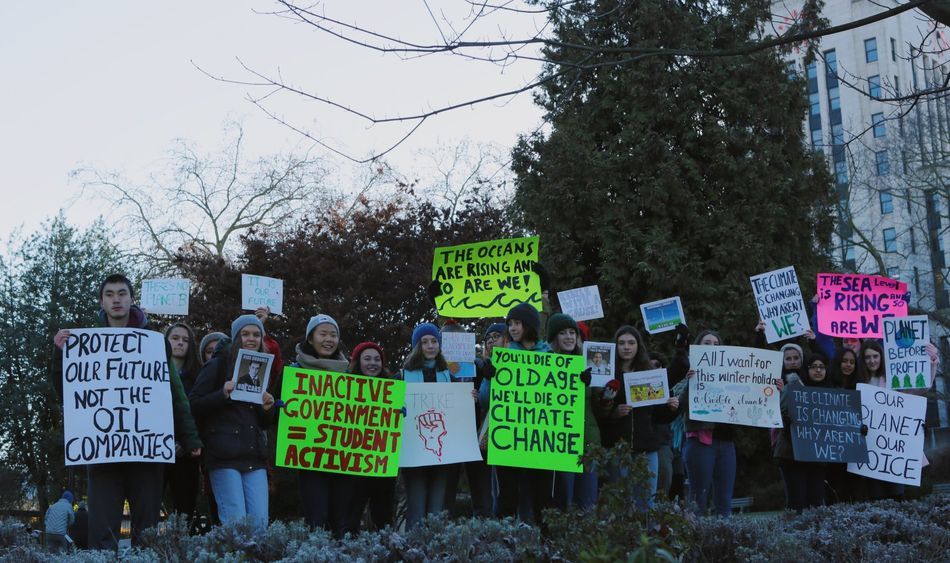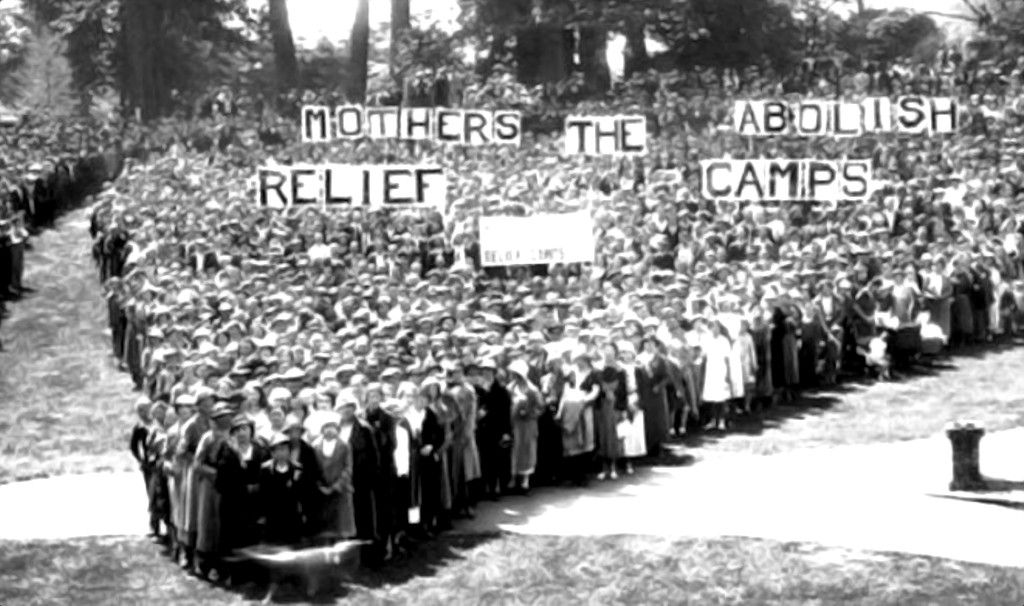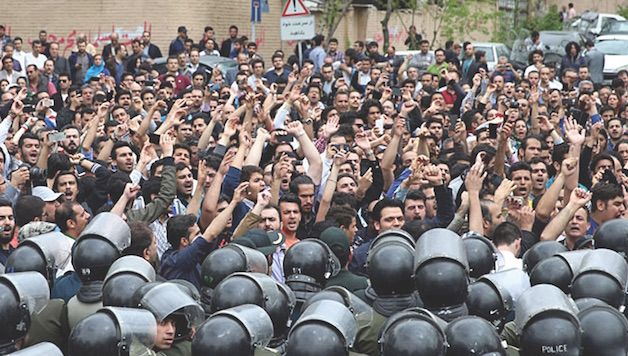With contributions from Allie Pev and Sustainabiliteens:Vijay Tupper, Sophie Tang, Lilah Williamson, and Harrison Johnston
Young people are set to inherit a ravaged planet, and in response they are more radicalized than ever. In opposition to abortion bans in Poland, against inequalities held over from the Pinochet era in Chile, to defeating of the dictatorship in Bolivia and the #EndSars uprising in Nigeria, youth around the globe are rising up and making material gains in favour of the working class and the oppressed. Youth have always played a central role in organizing against the establishment – from America’s Civil Rights movement and Tiananmen Squareto the Arab Spring in 2010, the youth-led fight continues today with the Black Lives Matter movement, the ongoing fight for Indigenous sovereignty, and the international climate justice movement.
In Vancouver, the largest climate justice demonstration in the city’s history, attended by 175,000 people, was organized in 2019 by a handful of youth calling themselves the Sustainabiliteens. It also was the seed of a growing regional climate justice network that now spans four sections: Vancouver, the North Shore, Surrey, and the Tri-Cities. Even with the difficulties of organizing in the age of COVID-19,the young activists continue the fight online byattending and organizing virtual events. Most recently, they hosted a live city council meeting watch party to advocate for a progressive Climate Emergency Action Plan for the City of Vancouver.
The Sustainabiliteens understand that “the climate crisis is intersectional,” says Lilah Williamson, high school student. “It is connected to racial justice and stems from capitalism and colonialism.” The fact that “the colonial government of Canada, that displaced Indigenous stewards of the land from their territory, has replaced them with corporations who are only interested in their short-term gain and bottom line” is part of the reason why we are in such a crisis, says Harrison Johnston, one of the organizers of the 2019 Climate March and current university student.
Sophie Tang adds that “tackling climate change requires system change.” After decades of austerity, governmental spending cuts to social services, and an escalating climate crisis, there is a growing understanding amongst young people that the capitalist system and the ruling class are to blame for our current crises. Young people have no delusions about the “good old days” when a minimum wage job could pay for rent and school – they have known only economic crises, skyrocketing personal debt to achieve even a semblance of the life their predecessors had, and ever-increasing anxiety about a warming globe.
One of the major points of struggle for young people are ever-rising tuition and living costs. While the hourly minimum wage in BC is set to increase to $15.20 as of June 2021, it still isn’t enough to offset the ever-climbing cost of necessities. In 1975, 200 hours work at a minimum wage job would cover the cost of a year’s tuition.Today, as tuition costs have more than tripled,students must work 650 hours to meet that same goal, not including the costs of living expenses. For young people not attending post-secondary, many have to work multiple jobs in the informal gig-economy in order to make ends meet. Housing in many urban centres remains drastically beyond the financial reach of working-class youth.
For those who do graduate post-secondary, “there arelimited options and not enough environmentally conscious jobs” once they hit the workforce, says Vijay Tupner. Too often, thewell-paying career options contribute to the problems at hand. Canada’s five biggest banks, the largest employers of business students – RBC, TD, Scotiabank, CIBC and BMO – all are deeply embedded with the fossil fuel industry. In 2020 alone, RBC, TD and Scotiabank provided over $89 billion to oil and gas companies. And for students who attend trade schools and apprenticeships, some of the best-paying work is at remote fly-in camps in Alberta’s oil sands or other fossil fuel operations.With an annual salary between $50,000 to $100,000, some of Canada’s best paying jobs are in resource extraction and processing – a private industry that takes its profits from the exploitation of workers and Indigenous land. Additionally, with the long, slow decline of labour organizing in Canada over the past 20 years, corporations have been able to get away with wage freezes and cutbacks to employee benefits in numerous industries. Chronic unemployment and the growth of the gig economy has created a precarious place for young people looking for stable jobs.
As time goes on and the crisis of capitalism deepens, young people are among the most affected– and it is their struggles that are making them question the capitalist system. But to move forward, we cannot just be anti-capitalist – we need a clear alternative to capitalism. The work of Socialist Alternative and its youth wing, Socialist Alternative Youth, is to build that alternative. By learning about the history of class struggle, how capitalist society exploits and oppresses the working class, and by gaining valuable experience through on-the-ground activism, our work is to help young people grow into capable and confident revolutionaries who can win reforms today and socialism tomorrow. It is our future; we need to fight for it.
Join the fight. Join Socialist Alternative Youth ([email protected])!




